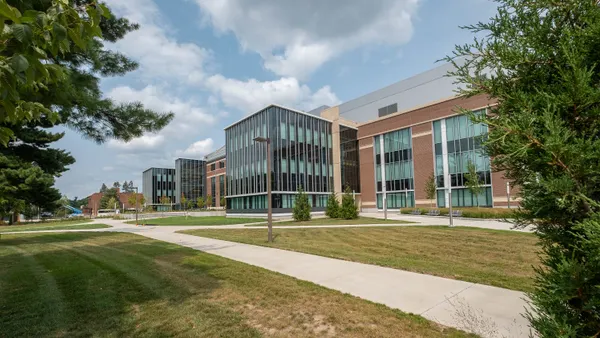Dive Brief:
- Boulder County officials are recommending a slower rollout of building codes that would require all new houses to be net-zero — or produce as much energy as they consume — by 2022 due to estimated building costs of implementing the plan.
- The proposed next step would have required new homes of 4,000 square feet — the average size of a new home in the county — or larger to be net-zero by January 2016. In lieu of that square footage, county officials recommended the new standards apply only to homes with more than 5,000 square feet. Currently, the net-zero standard only affects properties bigger than 6,000 square feet.
- Officials cited cost concerns as the reason for the delay, as the exact additional cost of net-zero building has sparked some debate among officials and advocates. According to Boulder-based architect Thomas Doerr, building a home to net zero standards adds an average of 15% to the total cost — which translates to about $100,000 for the typical 4,000-square-foot Boulder County house. Other estimates, however, have put that number closer to $200,000.
Dive Insight:
The county's sustainability examiner Ron Flax said the recommended delay in requirements for 4,000-square-foot homes was the result of he and his staff finding the net-zero plan was "moving faster than the marketplace could handle."
The changes were presented as a part of the yearly review of county building codes and align with the sustainability plan the county adopted in 2013.
Scott Rodwin, another Boulder-based architect, said he doesn't consider the proposed changes too drastic, as the county already has strict building codes in place. "For a typical house in Boulder County, you are required to build almost to net zero just to get a permit," he said. "Make no mistake: It's really difficult. But it's being done."
Now that county officials have announced their recommendation, the county will hold another public hearing on the issue on Sept. 22. After the hearing, the officials will make their official recommendation to county commissioners, who are expected to vote on the matter next month.
A similar issue came up last month in St. Louis, MO, where a county committee charged with recommending which new building codes the county should adopt advised that St. Louis remove some of the measures meant to reduce energy usage in new homes.










